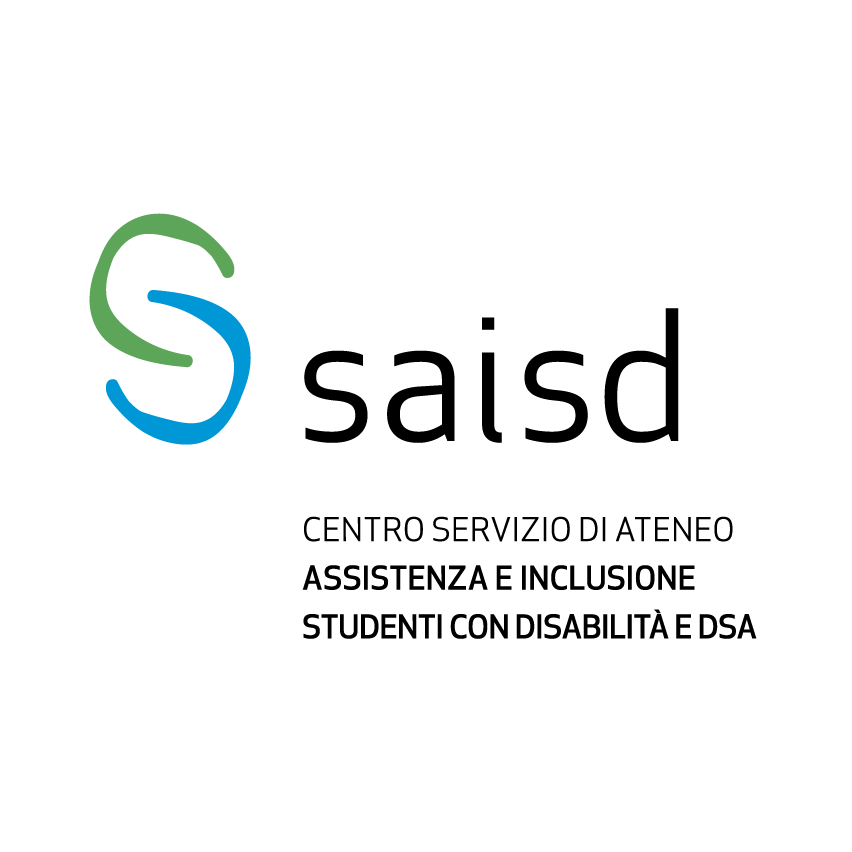The Delegate for Disability required by law n. 17 of 1999 has the function of coordinating and monitoring all initiatives concerning the inclusion of students with disability and DSA within the University ..
DSA Legislation
- The Law of 8 October 2010, n. 170
- D M 5669 of 12 July 2011 – DSA Guidelines
- The law 8 October 2010, n. 170 recognizes dyslexia, dysgraphia, dysorthography and dyscalculia as specific learning disorders, hereinafter referred to as “DSA”, which occur in the presence of adequate cognitive abilities, in the absence of neurological pathologies and sensory deficits, but may constitute a important limitation for some activities of daily life.
- The Universities must provide “specific services” that take the necessary actions to guarantee the reception, the tutoring, the mediation with the didactic organization and the monitoring of the effectiveness of the practices adopted.
The SAISD Disabled Center following the law n.170 / 2010 “New rules on specific learning disabilities in the school environment”, provides the necessary services to ensure the reception and support to students with certification of specific learning disorder in University.
Certification
The diagnostic certifications of DSA complied by public health Institutes or accredited Institutes, must be brought by the student to the SAISD center when requesting support services.
The diagnosis attesting DSA status should not exceed, at the time of submission, three years from the date of issue.
Compensatory tools and dispensative measures
The Universities must ensure that students with certified DSA have the dispensative measures and compensatory tools both during the admission tests to the degree courses, both during exams and tests.
As far as compensating instruments are concerned, it is believed that the universities should allow DSA-diagnosed students to be able to use the aids already in use during the scholastic path, such as, for example:
- digital recorder;
- personal computer;
- texts in digital format
- speech synthesis programs;
- calculator;
- educational materials in accessible formats (presentations, handouts, exercises), provided if necessary in advance of the lessons;
- other technological facilitation tools in the study and examination phase.
As regards the dispensative measures:
- consider the possibility of splitting the exam material into several partial tests;
- give preference to oral rather than written checks, also taking into account the individual skill profile;
- where the written exam is deemed indispensable, check whether the chosen format (eg multiple choice test, or closed answer, etc.) is an obstacle and can be replaced by other forms of written assessment;
- always with reference to the written tests, to provide a quantitative, but not qualitative, reduction of the test itself, or granting additional time, up to a maximum of 30%, for the performance of the test;
- consider the content in the evaluation rather than the shape and the spelling.
Given the great variability of the DSA, and considering the cases of particular gravity, it is opportune to evaluate in a personalized way and in agreement with the student the compensatory measures and the dispensative tools most suitable for the individual path.
